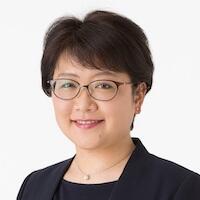What Chinese Nuclear Modernization Means for U.S. Deterrence Strategy
Amidst evolving geopolitical shifts, the foundation of U.S. nuclear deterrence, forged in the crucible of the Cold War, faces a new set of challenges. The principle of mutually assured destruction (MAD), once the bedrock of deterrence, is now being tested by Russia's aggressive posturing and China's strategic advancements. In the wake of Russia's invasion of Ukraine and signals of a willingness to employ tactical nuclear weapons, questions arise about the efficacy of traditional deterrence strategies. Concurrently, China's expanding nuclear arsenal adds complexity to the equation. Do these developments mean America needs to rethink its deterrence strategy?
In a new paper, “China’s Nuclear Enterprise: Trends, Developments, and Implications for the United States and Its Allies,” FSI Center Fellow Oriana Skylar Mastro focuses on the Chinese perspective of the equation and examines recent trends in Chinese military doctrine and their implications for U.S. deterrence strategy. Mastro’s contribution is part of a new report, Project Atom 2023: A Competitive Strategies Approach for U.S. Nuclear Posture through 2035, produced by the CSIS Project on Nuclear Issues.
A fundamental premise underlying Mastro’s analysis is that China merits distinct scrutiny differently from Russia, and that the two countries should not be considered “nuclear peers.” Although China is indeed engaging in nuclear force modernization, Mastro contends that the nation is still adhering to its fundamental nuclear policy: minimal retaliation capability and a no-use-first pledge.
While some have been troubled by China’s turn to regional nuclear options like the DF-26, an intermediate-range ballistic missile capable of carrying both conventional and nuclear warheads, Mastro asserts that this is because “they are regional weapons lower on the escalation ladder.” Rather than trying to achieve parity with the United States, she contends that Beijing’s objective is to preserve a credible second-strike capability, which is essential to the concept of deterrence.
Instead of prescribing specific alterations to U.S. force posture or nuclear modernization, Mastro suggests that any changes in U.S. defense strategies carefully consider the impact on Chinese nuclear strategy. The key is to preserve China’s minimal retaliation capability and its pledge to refrain from initiating nuclear warfare: “the most important goal for U.S. deterrence policy should be to ensure it does not encourage a change in China’s nuclear policy and in posture.”
Other steps the United States should take, according to Castro, include preventing the “co-mingling” of nuclear and conventional weapons on vessels apart from ballistic missile submarines. This precaution aims to eliminate ambiguity and mitigate the risk of possible conflict escalation. She also believes that there may be “more costs than benefits” in the proliferation of nuclear weapons among Asian allies — South Korea, Japan, and Australia. These threaten the non-proliferation regime and increase the possibility of accidents. The answer, Mastro holds, is not deployment of U.S. nuclear weapons on foreign soil, but rather increased consultations and joint planning with allies. Such collaborative efforts could reassure allies and partners of U.S. intentions even as they have minimal impact on Chinese contingency planning.
Read More

Despite changes in China’s forces and the illegal invasion of Ukraine, the United States does not need to increase the numbers of its nuclear arsenal, argues Oriana Skylar Mastro in a new report.


















